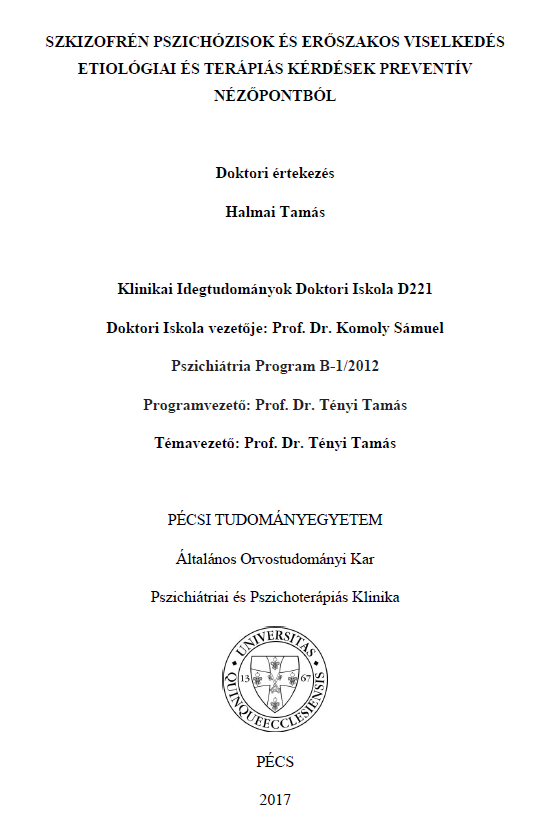Szkizofrén pszichózisok és erőszakos viselkedés etiológiai és terápiás kérdések preventív nézőpontból
Abstract
In my thesis I am exploring possible connections between schizophrenic psychoses and violent, especially homicidal behaviour. The first two chapters offer an overview of the literature relevant to his subject.
In the theoretic introduction, I am examining possible contributing factors to the aetiology of homicidal behaviour. We can establish that the presence of delusions, thoughts of persecution as well as the trait hostility are only strongly correlated with later violent behaviour. Further contributing factors include comorbid substance abuse, lack of insight and compliance with treatment. In many cases, however, the homicidal behaviour is not directly connected to psychotic symptoms. Comprehensive approaches regard homicidal behaviour as a process: the history of antisocial traits and conduct disorder in childhood significantly increase the likelihood of later violent behaviour.
I discuss the preventive approach to schizophrenia in a separate chapter. Following a review of the premorbid and prodromal symptoms of the illness, as well as the neuro-developmental approach, I propose the introduction of a staging model. In this model, a poly-genetic alteration leads to a progressive delay in neuronal maturation. This delay later leads to early deficits in neuromotor functioning, sustained attention and working memory and a dysfunction of the context module. These deficits and dysfunctions are signs of a deficient prefrontal-orbitofrontal-limbic integration and later lead to marked cognitive, emotional dysfunction. This chapter promotes the identification of early prmorbid signs of schizophrenia that may be targeted in preventive interventions.
The general hypothesis of our three studies is that homicidal behaviour in schizophrenia is an indication of more severe psychopathology.

